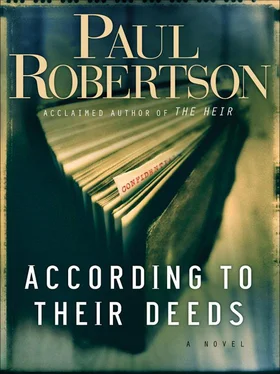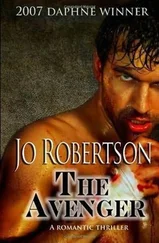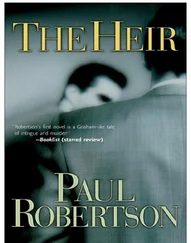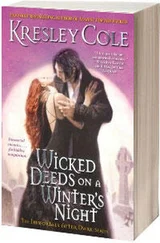Paul Robertson - According to Their Deeds
Здесь есть возможность читать онлайн «Paul Robertson - According to Their Deeds» весь текст электронной книги совершенно бесплатно (целиком полную версию без сокращений). В некоторых случаях можно слушать аудио, скачать через торрент в формате fb2 и присутствует краткое содержание. Жанр: Криминальный детектив, на английском языке. Описание произведения, (предисловие) а так же отзывы посетителей доступны на портале библиотеки ЛибКат.
- Название:According to Their Deeds
- Автор:
- Жанр:
- Год:неизвестен
- ISBN:нет данных
- Рейтинг книги:4 / 5. Голосов: 1
-
Избранное:Добавить в избранное
- Отзывы:
-
Ваша оценка:
- 80
- 1
- 2
- 3
- 4
- 5
According to Their Deeds: краткое содержание, описание и аннотация
Предлагаем к чтению аннотацию, описание, краткое содержание или предисловие (зависит от того, что написал сам автор книги «According to Their Deeds»). Если вы не нашли необходимую информацию о книге — напишите в комментариях, мы постараемся отыскать её.
According to Their Deeds — читать онлайн бесплатно полную книгу (весь текст) целиком
Ниже представлен текст книги, разбитый по страницам. Система сохранения места последней прочитанной страницы, позволяет с удобством читать онлайн бесплатно книгу «According to Their Deeds», без необходимости каждый раз заново искать на чём Вы остановились. Поставьте закладку, и сможете в любой момент перейти на страницу, на которой закончили чтение.
Интервал:
Закладка:
“I can see it,” Morgan said.
“And right beside it are matching volumes.”
“How many?”
Charles squinted. “It’s hard to tell. At least an Iliad. Probably an Aeneid. Possibly others.”
“Yes, sir.”
“But the question is about the Odyssey. Where is that book today?”
“I’ll find it. I’ll start in that schoolroom, and I’ll trace it as far as I can. I’ll find it, sir.”
“Good. I hope, Morgan, that you’ll find it in our basement. And find the others, too, if you can. I think they all want to be back together.”
EVENING
The evening was warm and the windows were open. The breeze, dark and handsome, waltzed with the curtain, showing off its white lace to the whole room. In their chairs, Charles and Dorothy read, the turning pages keeping slow time in a dance of their own.
Until, finally, Dorothy set her book on the table beside her.
“Why are you reading A Separate Peace?” Charles asked.
“I want to decide if Gene meant to do it.”
“If he rocked the branch on purpose?”
“I don’t think it’s that simple,” she said. “Why did you pick this book for our outing last Friday?”
“It’s about a young man who dies.”
“I don’t think it’s that simple,” she said again. “Gene resents Finny because he’s athletic and popular, but they’re still friends. At that one moment, though, on the tree branch, somehow Finny falls and breaks his leg, and it isn’t set right, and he doesn’t recover. Then Gene is forced to admit that he might have made Finny fall on purpose. Finny is so upset he runs off and breaks his leg again falling down the staircase. Then he dies during the operation to set it again.”
“Gene didn’t mean for Finny to die. He didn’t know that he would.”
“But Gene never really knows whether he meant for Finny to fall. Charles… what did we mean with William?”
“We didn’t mean for him to die.”
“We resented him.”
“How could we not have?” Charles said, wryly. “We did love him, Dorothy, but you know how difficult he became.”
“Were we glad when he died?”
“You know we weren’t. But where would we be if he hadn’t? Would we be sitting here now? Would we have the shop? We might not. We might have used all our money on legal costs, or we might have had to move somewhere remote to get him away from the city. Of course, I don’t mean that I wouldn’t trade anything to have him back.”
“I know what you mean.”
“Well, then yes, I knew that if I picked that book, an English major would realize what I was saying. So let me know whether Gene did it on purpose or even what that means, and we’ll understand ourselves better for it. That’s what books are supposed to do.”
“Sometimes they explain us too well,” Dorothy said.
“Derek Bastien said once that it was all chemistry, that behavior is just from the way a person’s brain is wired.”
“So why was William’s wired that way?”
“That’s what we don’t know.”
“What did you say to Derek?”
“I told him chemistry couldn’t explain anything as complex as a human soul. Or as sublime.”
“Ah, de Tocqueville. Democracy in America. Wonderful, Charles.”
“You are expanding your range, Derek.”
“Quite. What the Enlightenment sowed, the nineteenth century will now reap.”
“But they will still bake their own unique loaf from it.”
“You don’t let anyone off the hook, do you, Charles?”
“We’re all responsible for our own actions, Derek. De Tocqueville had America and France to compare. They both grew out of the Enlightenment, but very differently.”
“And he was hardly the first-or the last-to compare them. Here is a challenge, Charles. Think of an original comparison.”
“Between France and America?”
“In this period, yes. One that will surprise me.”
“You never let me off the hook, do you, Derek? All right, I believe one springs to mind. John Adams and Lamoignon-Malesherbes.”
“Malesherbes-he defended Louis the Sixteenth at his trial in the National Assembly, didn’t he?”
“To no avail, of course. Compare him to Adams, who defended the British soldiers at the Boston Massacre, and got them acquitted.”
“A slim comparison, Charles.”
“But what became of them? Adams was elected president, while Malesherbes was guillotined a year after Louis.”
“A bit more interesting. But I’m thinking more of the years after, when America stayed a democracy and France returned to monarchy.”
“That’s where I’m going, Derek. Adams’s son became president himself, of course.”
“And what about the family of Malesherbes?”
“His daughter and granddaughter were also executed with him, but his great-grandson, Alexis, grew up and went in search of a better democracy than France.”
“Charles-don’t tell me.”
“That’s his book in your hand, Derek. He compares France and the United States.”
“A clever comparison yourself, Charles. Congratulations. But of course, he predicts many of the problems that American democracy would face.”
“I admit it, Derek. We’re responsible for our actions, but we’re also still human.”
“And who is responsible for that?”
FRIDAY MORNING
Even before Charles had the lights on and the alarm off, Morgan was sprinting down the stairs.
“Mr. Beale? Could you look at this?” Morgan was excited. Very excited.
“Here I come.”
“It wasn’t hard,” Morgan said. “This one letter is the key. It’s from Victoria to her great-granddaughter, Alexandra, in 1895. Alexandra was seven years old.”
“How did you find it?”
“The London Museum had an archive.” Morgan smirked. “It cost you two hundred dollars to subscribe to it.”
“Money well spent, Morgan. What does it say?”
“It’s this one line: ‘I am sending you some books and toys from my own childhood.’ That’s all. But after Victoria died, there were no schoolbooks in the inventory.”
“So there is a chance those are the books.”
“Yes, sir, a chance. In 1912, Alexandra married this guy, Lord Bost-wick. Then she died thirteen years later, in 1925.”
“She was thirty-seven,” Charles said.
“Influenza. Her husband sold off all her belongings.”
“How?”
Morgan’s grin got even bigger. “Sotheby’s.”
Charles’s grin matched Morgan’s. “Oh, how wonderful. Perfect. I will call them immediately.”
“Mr. Beale?” Alice had arrived. “You have a telephone call. Mr. John Borchard.”
“Hello, this is Charles Beale.”
“Charles, John Borchard here.”
“Good morning, John.”
“Good morning! I hope it is for you.”
“It is so far,” Charles said.
“Very good! Charles, I wanted to call to follow up on our discussion yesterday morning. A specific point.”
“Go ahead, then.”
“Good. Thank you. The point is in regard to Patrick White. You may have wondered why I haven’t taken stronger action against him for the things he’s been saying about me.”
“I think you’ve been very gracious so far, John.”
“I have tried. There is a limit, of course, and some people might say he has already exceeded it, but I’m still reluctant to press charges. Let me tell you a story, Charles.”
Dorothy was just sitting at her desk. Charles looked at his watch. “Go ahead, John,” he said.
“Thank you. I want to tell you about a man I knew, back in my early days in Kansas. He was a fellow prosecutor in a neighboring county.”
“Oh, yes. I remember you mentioning Kansas.”
“Quite. This friend was quite zealous. He was young, idealistic, wanted to make his mark. He was even overzealous.”
Читать дальшеИнтервал:
Закладка:
Похожие книги на «According to Their Deeds»
Представляем Вашему вниманию похожие книги на «According to Their Deeds» списком для выбора. Мы отобрали схожую по названию и смыслу литературу в надежде предоставить читателям больше вариантов отыскать новые, интересные, ещё непрочитанные произведения.
Обсуждение, отзывы о книге «According to Their Deeds» и просто собственные мнения читателей. Оставьте ваши комментарии, напишите, что Вы думаете о произведении, его смысле или главных героях. Укажите что конкретно понравилось, а что нет, и почему Вы так считаете.











